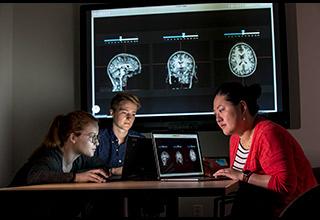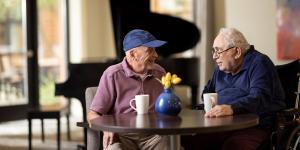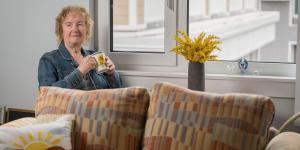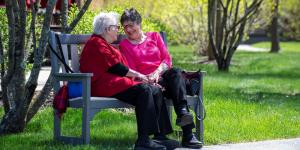What Matters the Most as We Age: Walking
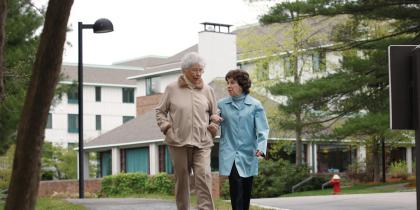
In the doctor's office, examining how an older adult walks can reveal a lot. It captures a snapshot of overall functioning and well-being, provides insight into patient mobility and independence, and foresight into fall risk, hospitalization, and disability.
Believe it or not, walking is not an automated task – it is highly complex! It relies upon the full spectrum of our body’s systems: the heart and lungs, the bones, joints, and muscles, the nerves, and our brain and spine. But when one of these systems weakens or fails, the brain is needed even more to compensate.
As a scientist at the Hinda and Arthur Marcus Institute for Aging Research, my group studies the role that the brain plays in walking for older adults. We use a combination of tasks and tests to relate brain blood flow to brain function and structure to general health and physical function. More recently, using MRI, we have found that the function and structure of our frontal lobes, which are responsible for many of our cognitive functions, are especially important for walking. This makes sense – when this fairly automatic task becomes challenging, we need more of our mental faculties for coordination, navigation, attention, and judgment. This is why brain health is not just important for cognition, but also critical for mobility!
The goal of our research is to help discover ways to improve brain blood flow, function, and cognition in order to also improve mobility. So, how can we have a sharp mind for a sound body?
According to researchers Jack Rowe and Robert Louis Kahn, successful aging includes “three main components: low probability of disease and disease-related disability, high cognitive and physical functional capacity, and active engagement with life.”
That being said, if you want to know how to age successfully, your best bet is to ask those who’ve figured out the secrets. And so I’ve consulted with a trusted centenarian. She gives the following advice:
- Do everything you can to make healthier decisions now. Do not wait, because what you eat, what you drink, and what you focus your energies on, how you move, all matter now and they will matter later.
- Exercise both your body and your brain. Dance (or in my case, wiggle) to your favorite music. Walk outdoors to get some fresh air. Skip the elevator. Write a story. Play a game. Work a puzzle.
- Stay active. Get involved in your community. Grow friendships. Find your hobby. Find your people and find your passion. This will keep you going from day to day.
- Do NOT get discouraged! The road to a brighter, fuller life may not be easy, but it is certainly worth it!
I would just like to add that it’s never too late to get started. Your healthier life can start today, no matter what your age!
Blog Topics
Learn More
Research on Aging
At the Hinda and Arthur Marcus Institute for Aging Research, Harvard Medical School-affiliated researchers are working to uncover answers to some of the most pressing challenges of aging.
